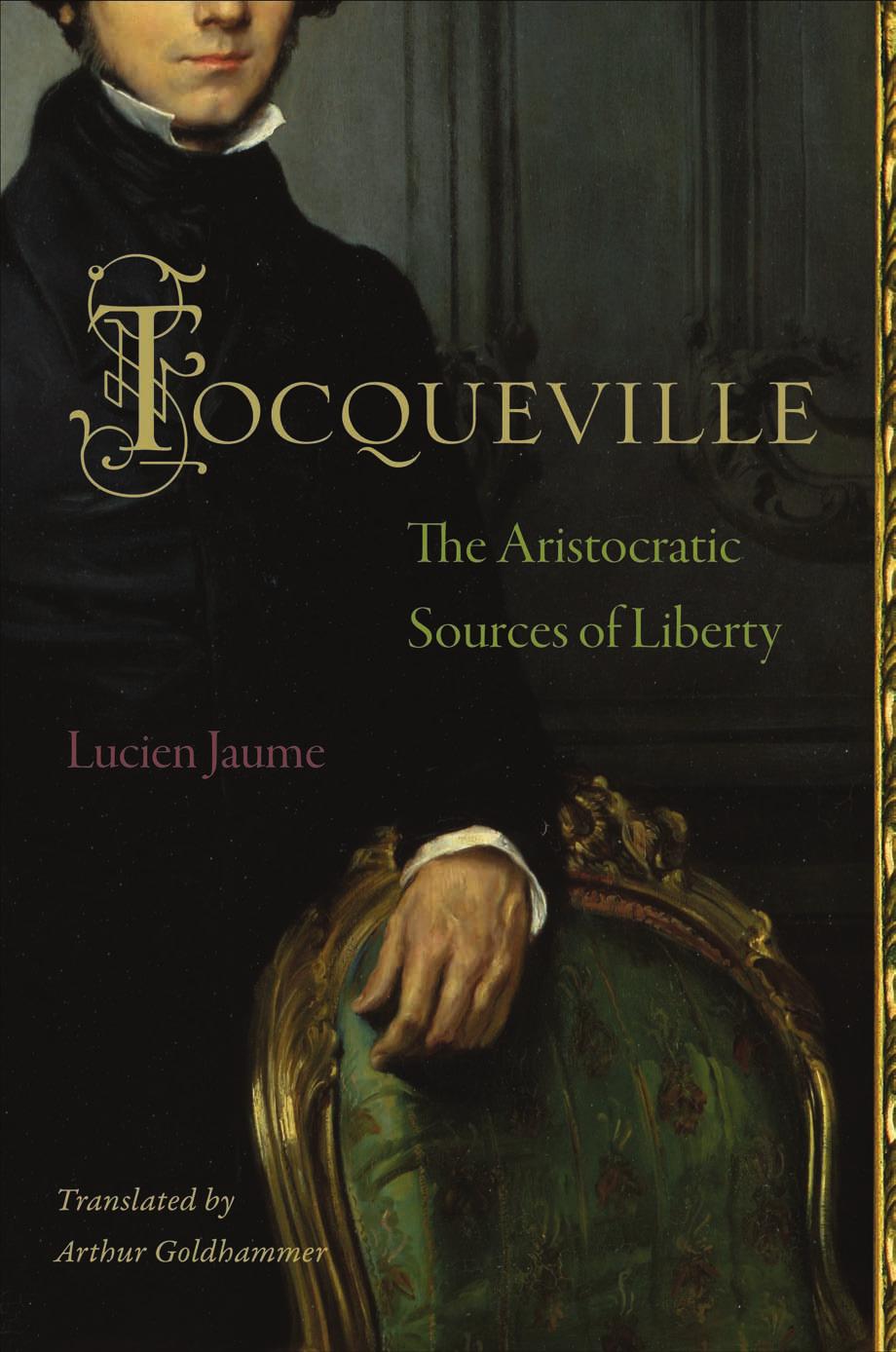Tocqueville: The Aristocratic Sources of Liberty by Lucien Jaume

Author:Lucien Jaume [Jaume, Lucien]
Language: eng
Format: epub, pdf
Publisher: Princeton University Press
Published: 2013-03-21T06:00:00+00:00
Spiritual Authority and the Double Aspiration
We are now in a position to examine the extent to which Tocqueville’s goal of spiritualizing what he called “democracy” was related to the previous question about new forms of authority. To ennoble democracy, “to raise souls up toward heaven,” was to attempt to breathe another kind of aspiration into a society based on majority rule and immediate material gratification. This brought democracy’s fundamental duality into focus: was it a fact or an end (telos)? As fact, it had a tendency to end in despotism in one form or another, collective or personified. As a moral end, leaders were obliged constantly to measure it against the competing ideals of liberty and grandeur. Once again we turn to Pascal: “The nature of man can be considered in two ways: according to its end, and then man is grand and incomparable; or according to the multitude … and then man is abject and vile.”95 By virtue of the “thought in the back of his mind,” Tocqueville the moralist rejected the naïve utilitarianism of modern society because he could not stop himself from hoping that leaders, at least, would aspire to greatness. What Pascal called “contrarieties”96 informed Tocqueville’s thinking about man, democracy, and himself. The theme of man as enigma and “chimera” touched him because it was for him a matter of lived experience. It is enough to read his description of himself to Mary Mottley at the time of their marriage to understand how personally he took the idea of dualism that he shared with Pascal:
Who can understand the many trivialities that fill my soul and yet the vast, boundless taste that ever draws it toward greatness? A thousand times I have wished that God had not allowed me to see the wretchedness and limitations of our nature, or that he had shown them to me from on high. But no, I belong to humanity, to the most common and vulgar humanity, and yet I glimpse something above and beyond humanity. In all things I pursue an ideal that recedes constantly. I must have all or nothing, and I struggle daily between the feebleness of my means and the immensity of my desires. There you have the whole of me, the most incomplete and incoherent of all the members of a species that is itself the most incoherent and incomplete of all that have ever been created…. The various parts of my being are ill-matched and ill-joined, and I am constitutionally incapable of ever achieving the happiness to which I aspire.97
This is one of the moments in which Tocqueville confesses his melancholic and depressive tendencies. There are many others. The experience of writing, the practical business of making texts, had the effect of distancing Tocqueville from these depressive tendencies (which he calls his “spleen”), not only to cultivate abstract thought in order to find (temporary) peace and the pleasure of understanding, but also to shape a vision that was derived from both his reading of the moralists and his observation of America.
Download
Tocqueville: The Aristocratic Sources of Liberty by Lucien Jaume.pdf
This site does not store any files on its server. We only index and link to content provided by other sites. Please contact the content providers to delete copyright contents if any and email us, we'll remove relevant links or contents immediately.
| Elections & Political Process | Ideologies & Doctrines |
| International & World Politics | Political Science |
| Public Affairs & Policy | Specific Topics |
| United States |
The Secret History by Donna Tartt(16606)
The Social Justice Warrior Handbook by Lisa De Pasquale(11485)
Thirteen Reasons Why by Jay Asher(7780)
This Is How You Lose Her by Junot Diaz(5753)
Weapons of Math Destruction by Cathy O'Neil(5029)
Zero to One by Peter Thiel(4816)
The Myth of the Strong Leader by Archie Brown(4785)
Promise Me, Dad by Joe Biden(4440)
Stone's Rules by Roger Stone(4412)
Beartown by Fredrik Backman(4403)
How Democracies Die by Steven Levitsky & Daniel Ziblatt(4392)
The Fire Next Time by James Baldwin(4336)
100 Deadly Skills by Clint Emerson(4070)
A Higher Loyalty: Truth, Lies, and Leadership by James Comey(4024)
Rise and Kill First by Ronen Bergman(4008)
The David Icke Guide to the Global Conspiracy (and how to end it) by David Icke(3875)
The Farm by Tom Rob Smith(3869)
Secrecy World by Jake Bernstein(3773)
The Doomsday Machine by Daniel Ellsberg(3725)
